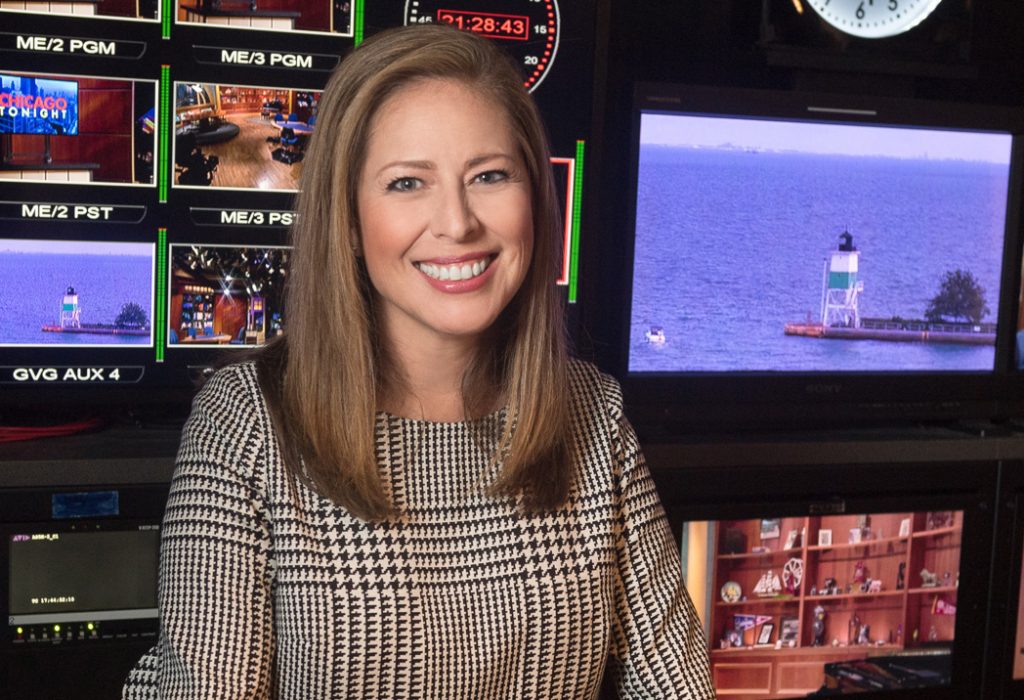Sandra Cordova Micek has spent the last 16 months listening, questioning and thinking about where Chicago's premier public television station and classical music radio station are headed.
Now she is putting it all together.
As president and CEO of Window to the World Communications Inc., the Wilmette resident and former Hyatt Hotels marketing executive has headed the nonprofit media enterprise since the spring of 2018, when she succeeded another Wilmette denizen, Daniel Schmidt, who held the top job for nearly 20 years.
Today Micek will formally present her plans for the next three years to the board of the parent company of WTTW-Channel 11 and WFMT 98.7-FM.
In advance of the board meeting, she shared a summary of her long-awaited strategic plan and outlined her vision for the two legacy media brands she inherited.
On a recent morning over coffee and muffins in her office — where she works at a standing desk — Micek described the 24-page document as a blueprint for the future and a guide to keep employees in all departments focused on the company's goals.
After years of spiritless management, squandered resources and missed opportunities under her predecessor, it was refreshing to hear Micek define the mission of WTTW and WFMT — to "enrich lives, engage communities, and inspire exploration" — and to hear her specify serving the public as a top priority.
Not since the heyday of the late William J. McCarter, the visionary architect of public broadcasting in Chicago who ran WTTW and WFMT from 1971 to 1998, has a clear commitment to excellence been articulated from the top.
News and public affairs will take center stage once Micek names a successor to Mary Field, who retired in July after 23 years as executive producer of WTTW's flagship news program, "Chicago Tonight." Plans also call for children's content that nurtures young minds, and arts, music, and entertainment content that activates curiosity.
Whether Micek and her team can deliver may depend on how effectively they can restore the culture of innovation and creativity that existed under McCarter. That's when WTTW was a model for the nation and the incubator of such iconic programming as "Soundstage," "Sneak Previews," "Image Union," "The McLaughlin Group," "Wild Chicago" and "Chicago Tonight," among many others.
In a similar vein, WFMT is a shadow of its former glory as "Chicago's Fine Arts Station" (and onetime radio home of Mike Nichols, Studs Terkel and other giants), now languishing at the bottom of the ratings.
The key to becoming a vital and essential asset to people throughout the Chicago area again is through the development of audience-driven content and "public engagement," according to the plan.
Underscoring that effort is a major yearlong initiative announced this week by WTTW to explore the personal aspects of Chicago's gun violence epidemic.
"Firsthand: Gun Violence," a 15-part series of documentaries to be streamed online starting November 12, will share the stories of five Chicagoans living with the repercussions of gun violence. (Here is the link.)
“WTTW is uniquely positioned to cover the important stories and critical issues facing our city," Micek said of the series. “We hope that through our work and this project, we fulfill our purpose to enrich lives, engage communities, and inspire exploration.”
The project also will include a series of stories produced in partnership with The Trace, a nonprofit news organization covering guns in America, and a series of community screenings and discussions with experts and policymakers.
“One of the reasons that we have allowed this problem to fester is that Chicagoans are rarely shown the full humanity of individuals who are living with gun violence,” Dan Protess, producer and director of the documentaries, said in a statement. “This series offers three-dimensional portraits of individuals who have survived the daily tide of gun violence and are doing what they can to heal themselves and their communities.”
Tuesday’s comment of the day: Terry Stanton: The large and usually inexplicable jumps up and down in ratings rankings tell me not that listening habits are extremely volatile (Does anyone think they are? Did Eric lose a large number of listeners one month and get them all back in another?), but that radio ratings are unreliable, probably because samples are too small and/or not representative.



